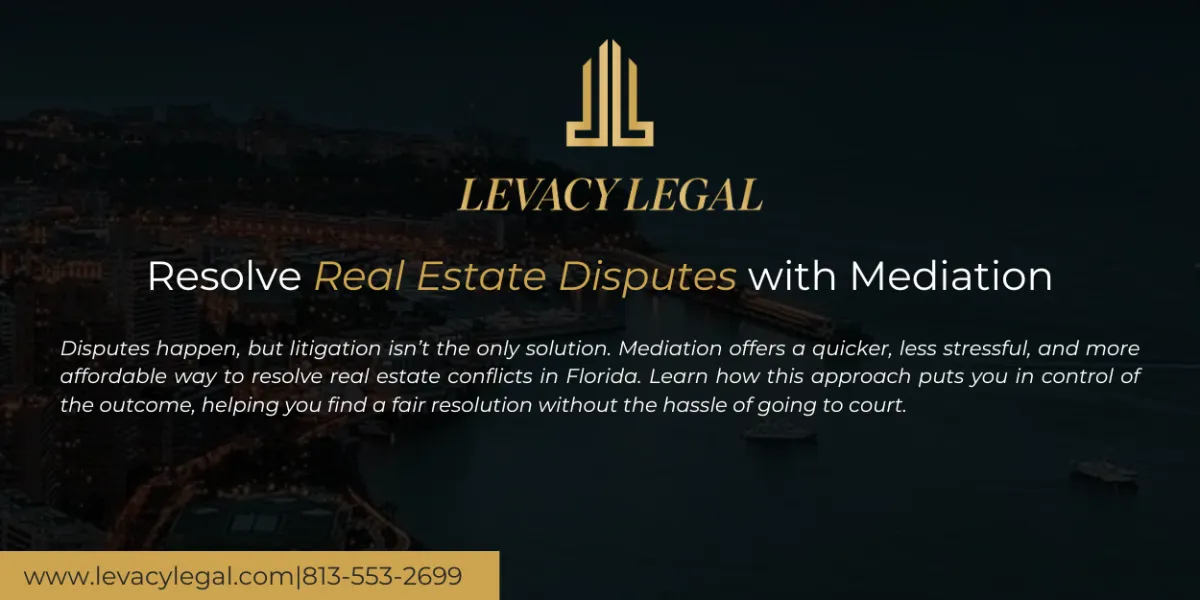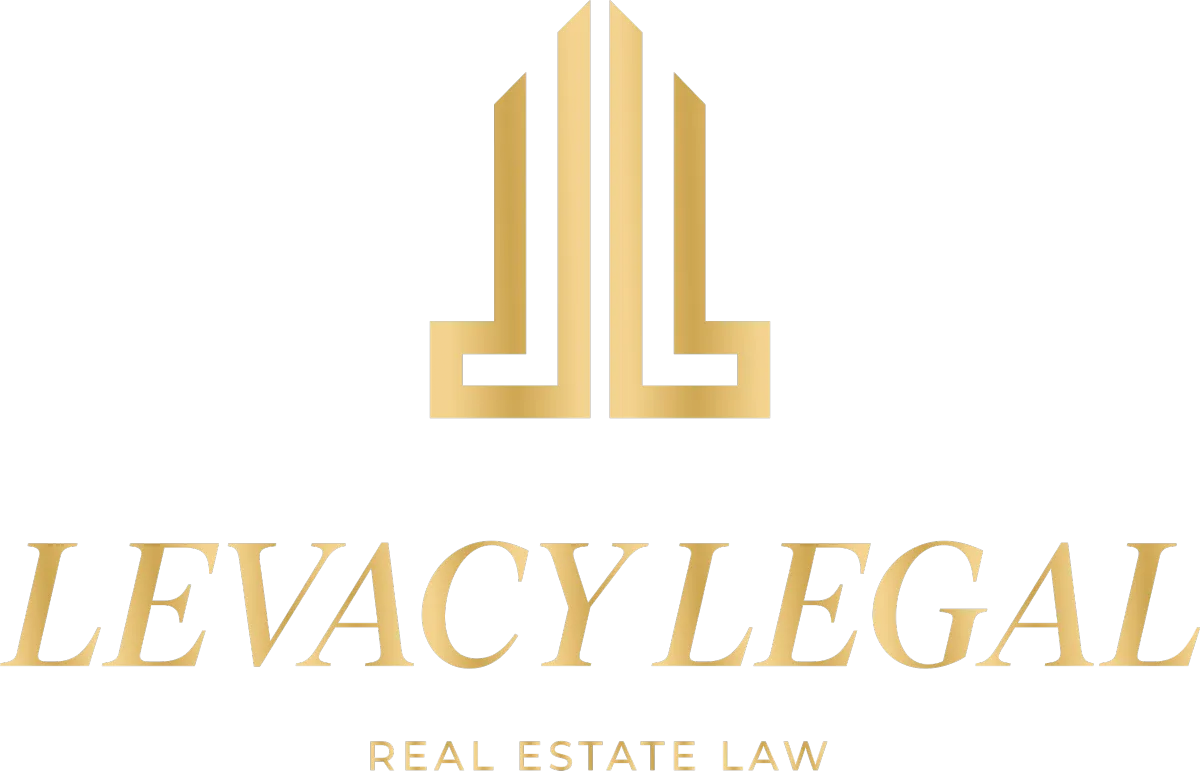
BLOGS

How to Resolve Real Estate Disputes in Florida: A Mediation Approach
Buying or selling property can be one of the most exciting moments in your life, but it can also become stressful when a real estate dispute arises. Whether you’re dealing with a disagreement over the terms of a sale, a landlord-tenant issue, or even a dispute with your HOA, these conflicts can escalate quickly—and so can the legal fees. But there's a better way to resolve these disputes without going through a lengthy court battle: mediation.
In this guide, we’ll walk you through how mediation can help resolve real estate disputes in Florida and share some practical tips to ensure a smooth and successful mediation process.
What is Mediation?
Mediation is essentially a conversation between two parties, but with a twist: a neutral third party, called a mediator, is there to guide the discussion and help both sides reach a fair agreement. Unlike going to court, mediation is informal, confidential, and focused on finding common ground. It’s not about who’s right or wrong—it’s about finding a solution that works for everyone.
In Florida, mediation is widely used to resolve real estate disputes because it’s quicker, less expensive, and much less stressful than litigation.
Why Mediation Works for Real Estate Disputes
Here are a few reasons why mediation is such a smart option for resolving real estate conflicts:
1. It's Easier on Your Wallet
Let’s face it—legal battles are expensive. Attorney fees, court costs, and the time it takes to prepare a case can add up fast. Mediation is typically much cheaper because it takes less time and avoids the formalities of a courtroom.
2. It Saves Time
Court cases can drag on for months, sometimes even years. Mediation, on the other hand, can often wrap up in a matter of days or weeks. That means you can resolve your dispute and get on with your life much faster.
3. It’s Private
Unlike court cases, which are part of the public record, mediation is completely confidential. This can be a huge relief if you’re dealing with sensitive issues or just don’t want your business aired in public.
4. You Stay in Control
In a court case, a judge makes the final decision, and you might not like the outcome. With mediation, you have a say in how the dispute is resolved. You and the other party work together to reach an agreement that you both can live with.
Types of Real Estate Disputes Perfect for Mediation
Mediation is an ideal option for many types of real estate conflicts, including:
Buyer-Seller Disputes: Issues like disagreements over repairs, closing costs, or property conditions.
Landlord-Tenant Conflicts: Arguments over lease terms, maintenance issues, or deposit returns.
Boundary Disputes: When neighbors can’t agree on property lines or easements.
HOA Disagreements: Disputes between homeowners and associations over fees, rules, or shared amenities.
How the Mediation Process Works
While mediation is flexible, the general process usually looks like this:
Introduction and Ground Rules: The mediator explains the process, and both parties make opening statements to share their sides of the story.
Discussion: Both parties discuss their concerns, with the mediator guiding the conversation to keep things productive and respectful.
Private Sessions: Sometimes, the mediator will speak to each party separately to get a better understanding of the issues.
Negotiation: The mediator helps both sides negotiate and work toward a mutually acceptable solution.
Agreement: If you come to an agreement, it’s written up and signed, making it legally binding.
Tips for a Successful Mediation Session
Here are some ways you can ensure your mediation goes smoothly and results in a resolution that works for everyone:
1. Come Prepared
Make sure you have all your documents in order before the session—things like contracts, emails, photos, or inspection reports. The better prepared you are, the easier it will be to present your side clearly.
2. Be Willing to Compromise
Mediation works best when both sides are willing to give a little. If you come in expecting to “win” everything, you might leave disappointed. The goal is to find a middle ground that both sides can agree on.
3. Listen More Than You Speak
It’s easy to get caught up in what you want out of the mediation, but don’t forget to listen to the other side. Understanding their perspective can help you find solutions that work for both of you.
4. Stay Calm and Focused
Real estate disputes can be emotional, but staying calm will help you think more clearly and make better decisions. If you feel yourself getting frustrated, take a deep breath, and remember the goal is to find a solution, not to “win.”
5. Have Realistic Expectations
It’s important to know what you realistically hope to get out of the mediation. Set clear goals, but understand that compromise is key.
6. Trust the Process
The mediator is there to help, not take sides. Trust their guidance and allow them to steer the conversation toward resolution.
Why Mediation is a Great Choice for Florida Real Estate Disputes
At the end of the day, mediation is a powerful tool for resolving real estate disputes in Florida because it’s efficient, cost-effective, and keeps the power in your hands. Whether you’re dealing with a buyer-seller dispute, landlord-tenant issue, or a disagreement with your HOA, mediation offers a path to resolution that avoids the stress and expense of court.
By coming prepared, staying open-minded, and trusting the process, you can resolve your real estate disputes quickly and move on with your life.

